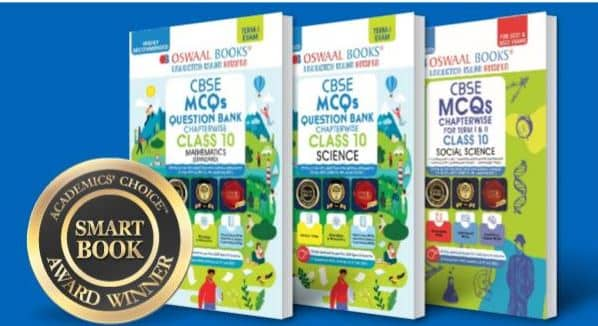CBSE 10th Special Study Plan Launched For Term 1 Boards
Here is the blueprint that is designed to help you score 40/40 in mathematics, Science, and Social Science.
Trending Photos
)
Introduction
The Term 1 Board Examinations are just a few months away, and many students have finalized their examination strategy and commenced their examination preparation. Timely preparation reduces exam anxiety and gives students the confidence to attempt questions.
However, many students might still be looking out for some guidance on how to prepare for the Term 1 examinations. Here is the blueprint that is designed to help you score 40/40 in mathematics, Science, and Social Science.
1. Unit-Wise Weightage Plan For Each Subject
With only a few months to go, students now need to shift gears to move towards an exam-oriented strategy. For that, it is essential for students to understand the unit-wise weightage for each topic in Mathematics, Science, and Social Science. It will ensure that students give more time and focus to those topics which have more weightage in the exam.
For mathematics, topics that have higher weightage include Algebra (10), Coordinate Geometry, Geometry, and Number systems (6 marks each). Topics such as trigonometry (5), mensuration (4), statistics, and probability (3) have lower weightage than the first few topics.
In Science, focus on Chemical Substances: Nature and Behaviour (Chapters 1,2 and 3), which have a weightage of 16 marks, followed by and Natural Phenomena (Chapters 10 and 11) with a weightage of 14 marks. These 5 chapters have the bulk of the weightage (30). World of Living (Chapter 6) has a weightage of 10 marks, the lowest weightage amongst all the units, but it comes from a single chapter.
In Social Science, India and the Contemporary World -1, Contemporary India – I, Democratic Politics – I and Economics, are each of 10 marks each.
Like-wise, we may prepare for all subjects for CBSE 10TH Board Exams 2021-22 For Term 1
2. Create a daily time schedule for each chapter
Create a schedule that incorporates the chapter difficulty (easy/difficult), days, and hours needed, followed by the examination resource. If you chart this in a tabular format, you will have full visibility into how much time do you need to complete the full syllabus.
For example, Real Numbers, Coordinate Geometry, and statistics are easier topics, and you should devote 3-4 days each to these topics to finish the syllabus, devoting at least 8 hours. For the resources, you may want to refer to the NCERT textbook and a comprehensive question bank like the Oswaal CBSE MCQs Question Bank Chapter wise for Term-I, Class 10, available for Mathematics, Social Science, and Science.
Similarly, create a table rating the chapter difficulty, the time needed, and the examination resource for Science and Social Science also.
3. Solve Every Question Type
Practicing with a question bank improves student's confidence as it reduces exam anxiety around the correct answering strategy. MCQ examinations need a slightly different preparation strategy as students to need to be aware of distractors (plausible but incorrect answers), answering strategies like elimination, fitment, and so on.
New Syllabus Oswaal Chapter-wise CBSE MCQ Question Banks Class 10 For Term 1 Board Exams 2021—22 | Maths, Science, Social Science, English & All Subjects are strict as per the "Special Assessment Scheme" issued by the Board on July 5, 2021 & CBSE Syllabus Announced on 22 Jul for Term 1 Board Examination in 2021-22. They feature MCQs based on the latest typologies introduced by the board like stand-alone MCQs, MCQs based on assertion-reason, case-based MCQs. Extensive practice with this largest MCQs Question Pool will empower students to approach the exam with confidence.
These CBSE Term 1 Question Banks Class 10 includes Answers with Explanations & also unit-wise periodic tests, mnemonics, concept videos via QR codes for practice, enabling students to practice rigorously and exclusively for CBSE 10th Term 1 Board Exams 2021-22.

Here’s the recommended link for New Syllabus Chapter-wise CBSE MCQ Question Banks Class 10 For Term 1 Board Exams 2021—22 | Maths, Science, Social Science, English & All Subjects: https://bit.ly/3j4XFU4
New Syllabus Chapter-wise CBSE MCQ Question Banks Class 10 For Term 1 Board Exams 2021—22 Maths: https://bit.ly/3j2ZrFB
4. Refer NCERT books
Students should refer to the NCERT textbooks as they help clarify fundamentals and drive understanding of basic concepts. NCERT books also offer in-depth knowledge in easy-to-understand language and strictly follow the CBSE curriculum. Covering the NCERT books thoroughly ensure that students do not miss out on any important topics.
5. Decode Exam Pattern Via Solving Sample Papers
Solving examination papers regularly is a sure-shot way of securing high marks, in this case, and decode the exam pattern for Term 1 Board Exams For CBSE 10th 2021—22. It will help to boost self-confidence, beat exam fear. Stay tuned at cbseacademic.nic.in for sample paper release for CBSE 10TH Term 1 Board Exams. Question banks help students gain practice, improve their speed and accuracy, and test their performance in a mock exam situation. They also instil time management and discipline in students, which are great traits to have to ensure good scores.
Conclusion
Diligent application of the above steps will surely instil confidence in students appearing for their Term 1 examinations in a few months. Students need to understand that they need to be as much aware of the subject as techniques like time management and MCQ strategy. Starting well ahead of time and practicing with high-quality resources will help them to score high.
Stay informed on all the latest news, real-time breaking news updates, and follow all the important headlines in india news and world News on Zee News.
Live Tv







)
)
)
)
)
)
)
)
)
)
